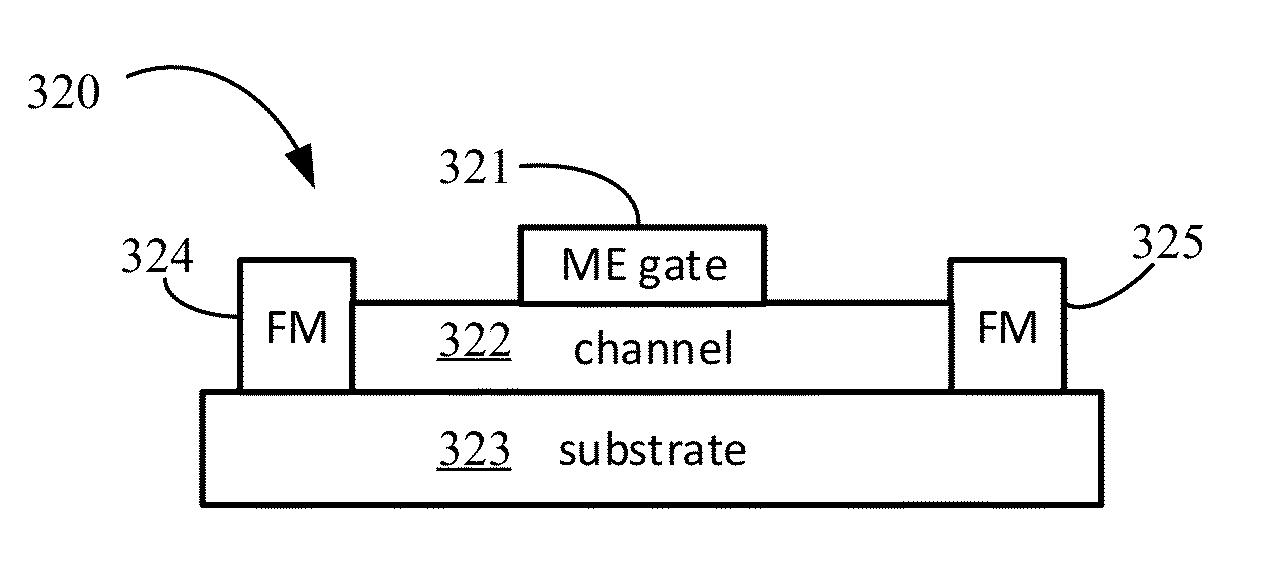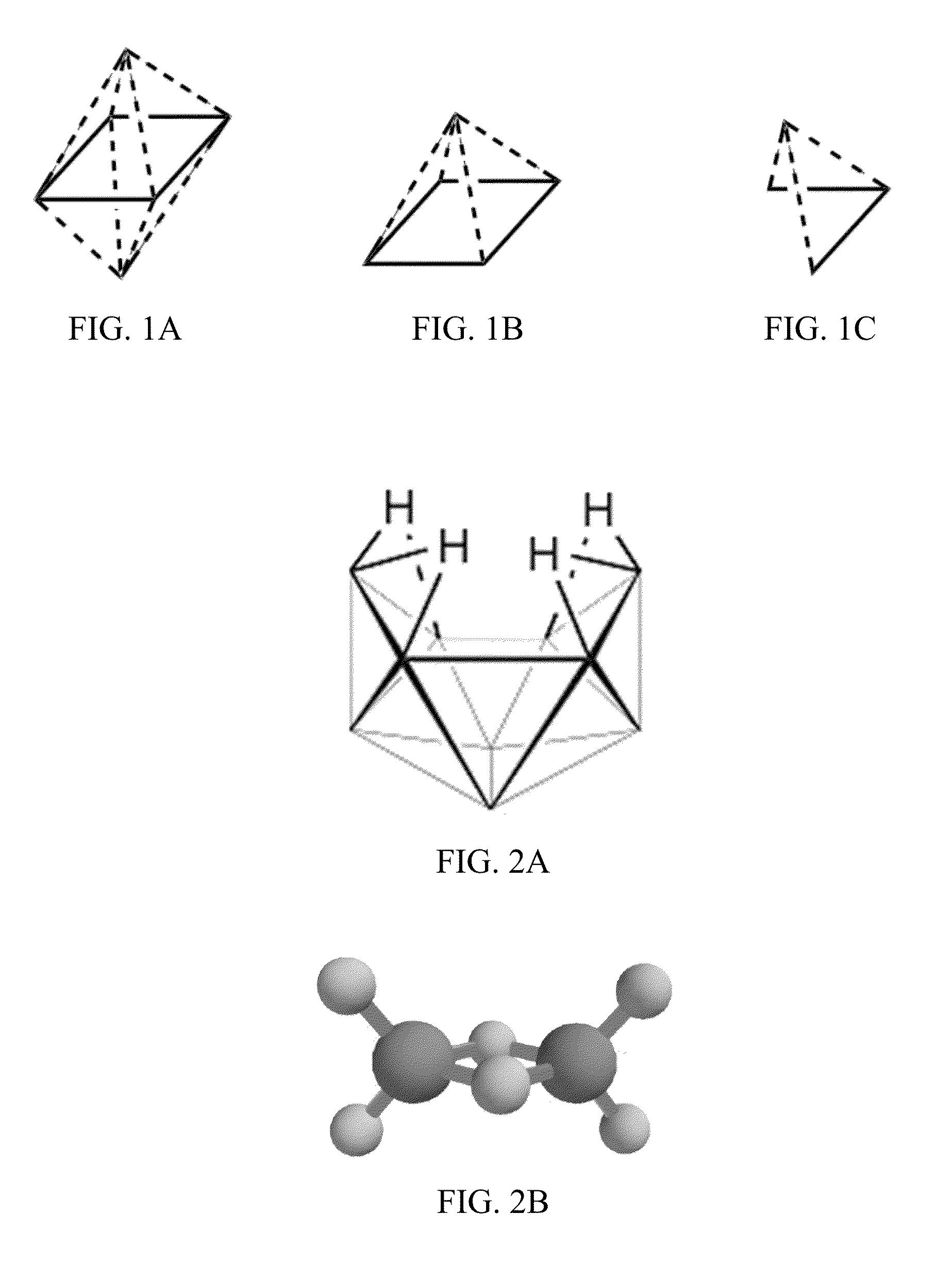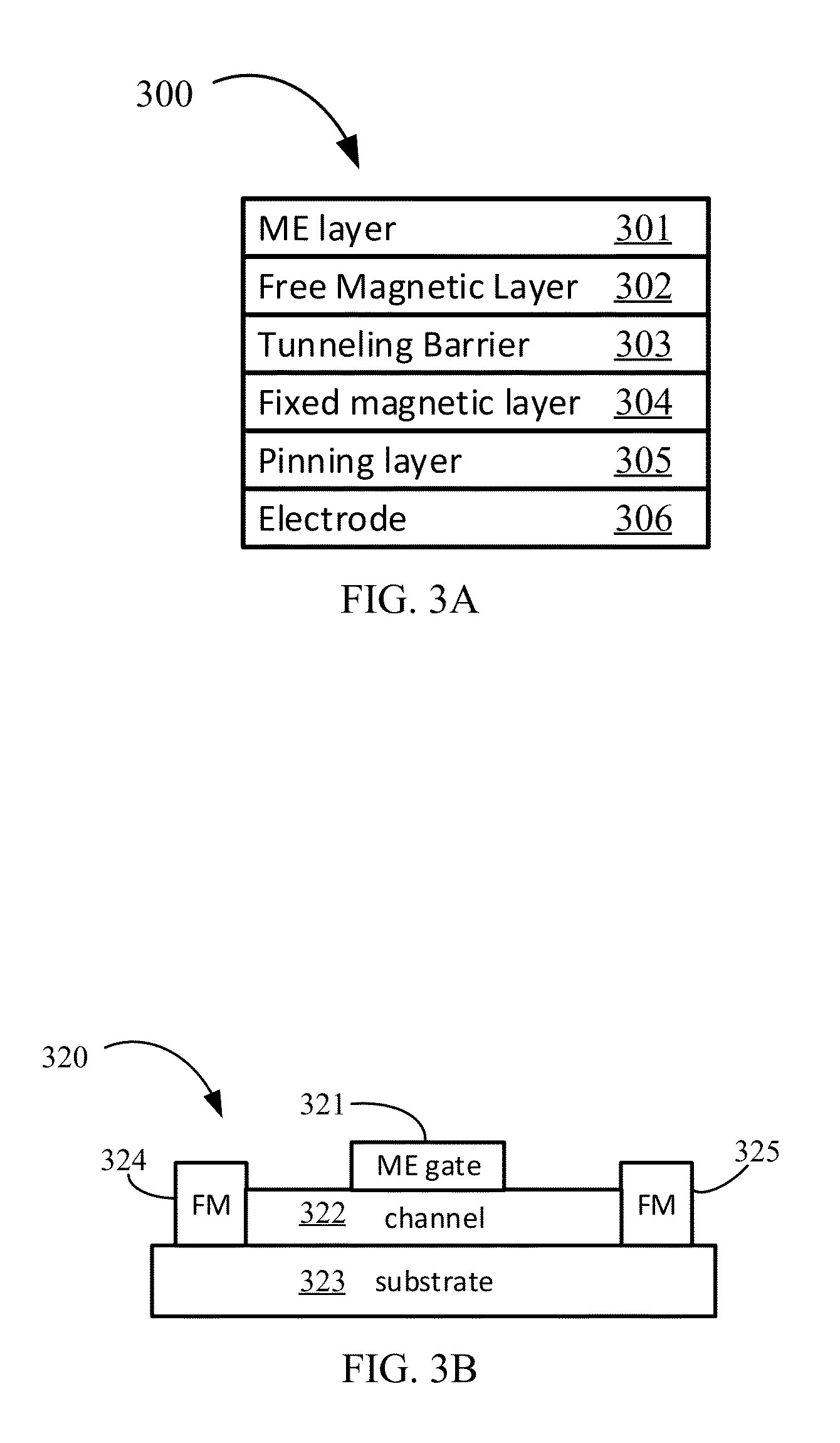Magnetoelectric chromia having increased critical temperature
a technology of critical temperature and magnetoelectric chromium, which is applied in the direction of chromium oxide/hydrate, magnetic body, magnet paint, etc., can solve the problem of still not providing enough flexibility for practical applications, and achieve the effect of convenient wide-spread use and flexibility
- Summary
- Abstract
- Description
- Claims
- Application Information
AI Technical Summary
Benefits of technology
Problems solved by technology
Method used
Image
Examples
example 1
Pulsed Laser Deposition
[0043]Boron doped chromia (Cr2BxO3-x) thin films with substitutional doping levels between zero and 3% were grown using pulsed laser deposition in borane background gases.
[0044]The boron doping was achieved by including decaborane (B10H14) vapor in the deposition chamber during the pulsed laser deposition. However, other boranes may be suitable as well. For example, pentaborane (B5H9) or diborane may be used to form the chromia and boron alloy.
[0045]Here, pulsed laser deposition of Cr2O3 from a chromia target in the presence of B10H14 background atmosphere leads to substitution of O2− ions by boron and thus Cr2BxO3-x alloys. A KrF excimer laser with pulse energies of 200 mJ and pulse width of 20 ns was used at a repetition rate of 10 Hz to create a plume from a chromia target allowing to deposit (0001) textured chromia thin films on cleaned sapphire (0001) substrates. The substrates were kept at 700° C. during deposition and are located ˜8.5 cm from the target...
example 2
Theoretical Effect of Substitutional Doping
[0060]The effect of substitutional doping on the Neel temperature of Cr2O3 was explored. In particular, first-principles calculations were used to explore the possibility of enhancing the Neel temperature TN of the magnetoelectric antiferromagnet Cr2O3 by substitutional doping. A number of transition metal (V, Ti, Mn, Fe, Co, and Ni) and anion (N and B) impurities were evaluated for their effect on the exchange interaction. Although transition-metal impurities and N are likely to reduce TN, it was discovered that substitution of O by B is likely to increase TN. Both N and B impurities introduce impurity states mediating strong hybridization and magnetic interaction between the neighboring Cr ions. For N impurities, this leads to magnetic frustration, but in the case of B substitution, surprisingly the stability of the ground antiferromagnetic state is enhanced.
[0061]It was determined that a sizable and tunable TN increase of chromia films c...
PUM
| Property | Measurement | Unit |
|---|---|---|
| Temperature | aaaaa | aaaaa |
| Fraction | aaaaa | aaaaa |
| Fraction | aaaaa | aaaaa |
Abstract
Description
Claims
Application Information
 Login to View More
Login to View More - R&D
- Intellectual Property
- Life Sciences
- Materials
- Tech Scout
- Unparalleled Data Quality
- Higher Quality Content
- 60% Fewer Hallucinations
Browse by: Latest US Patents, China's latest patents, Technical Efficacy Thesaurus, Application Domain, Technology Topic, Popular Technical Reports.
© 2025 PatSnap. All rights reserved.Legal|Privacy policy|Modern Slavery Act Transparency Statement|Sitemap|About US| Contact US: help@patsnap.com



